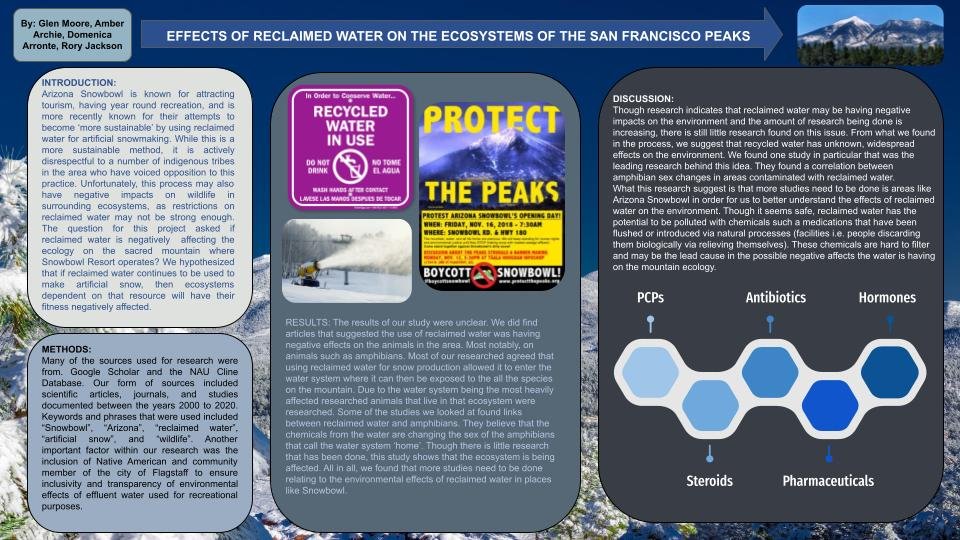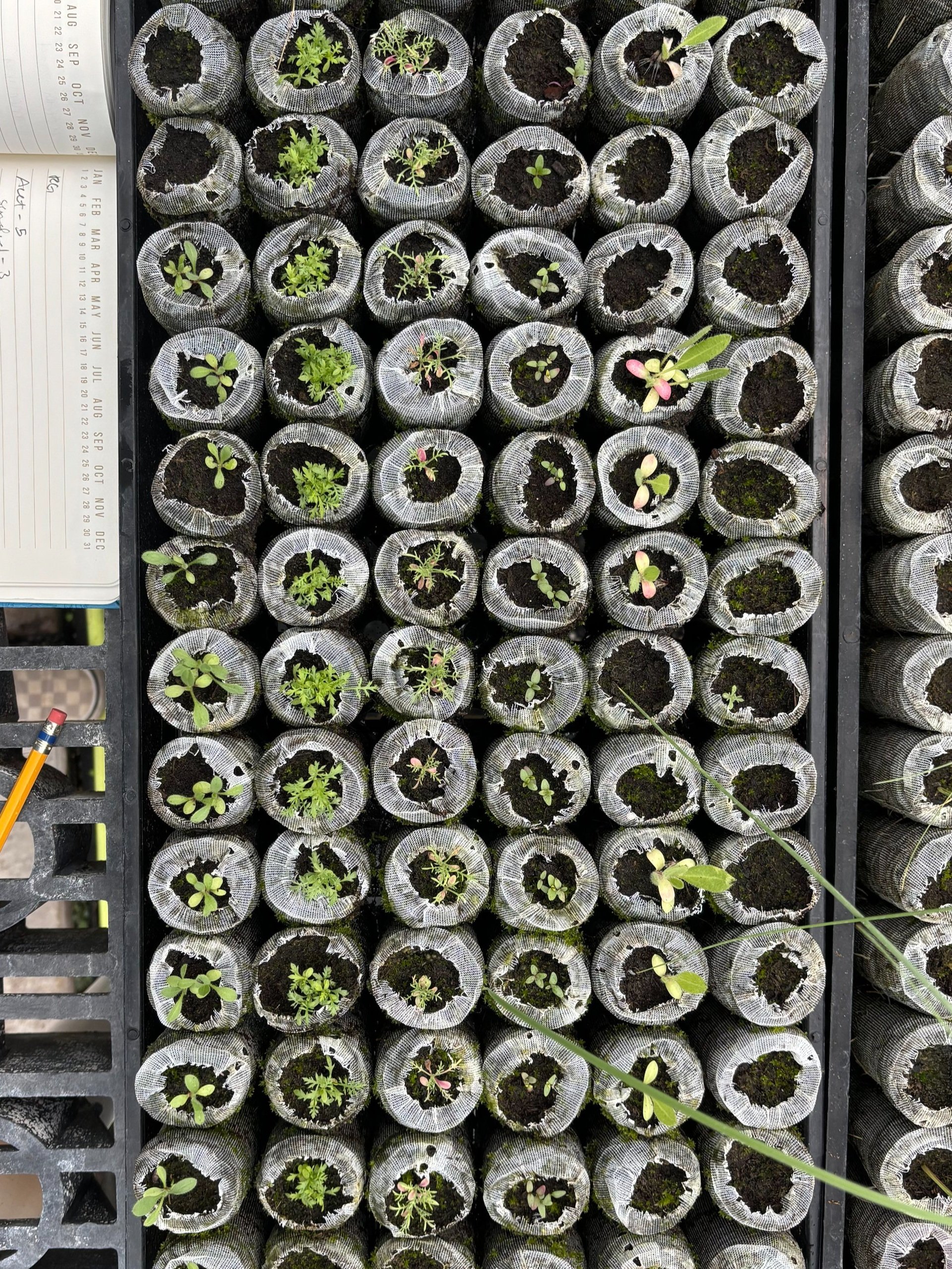
Southwest - Arizona, Utah, New Mexico
Research
Scroll ↓
National Conference for Ecosystem Restoration
Albuquerque, New Mexico - 2024
During the week, I had the privilege of receiving a travel sponsorship from the Bureau of Reclamation’s Native American Affairs Program to attend the National Conference of Ecosystem Restoration. At the conference, I immersed myself in various sessions dedicated to dryland and riparian restoration efforts, aligning with my present and forthcoming ecosystem projects. These projects are integral to my pursuits during my initial year pursuing a Master of Science degree in Biology at Northern Arizona University, where I will concentrate on dryland riparian restoration.
I’d like to thank those who have honored me with this scholarship, Genevieve Allen, Matthew Grabau, and Genevieve Johnson.
Post-Baccalaureate Research - RaMP
In the Research and Mentoring for Post-baccalaureate program at NAU, we’ve developed a project intended to combat desertification, particularly wind-driven soil erosion on the Navajo reservation, we propose to construct wind erosion structures through revegetation. The primary goal of this project is to restore drylands using native vegetation, which will help stabilize soil structures and combat soil erosion. Our approach will use a variety of native grasses and forbs found in northern Arizona, with a particular focus on lands within the Navajo Nation. By creating and developing wind barriers constructed from a combination of native grasses and slender wooden boards for short-term and long-term stabilization. These barriers will help stabilize areas prone to wind erosion, particularly during droughts or periods of high winds.
The Nature Conservancy
Native Americans Tribes Upholding Restoration and Education
Utah State University - Canyonlands Research Center, Moab, Utah
In the Summer of 2022, I participated in a 7-week immersive summer program nurturing Indigenous leaders from the Four Corners Region. Here, I received training in natural resource science, land management, and conservation through instructional activities at USU-Blanding and field studies at the Canyonlands Research Center. Topics covered included plant and soil studies, animal science for climate change adaptation, Indigenous food systems, riparian restoration, sustainable agriculture, and climate change impacts on rangelands. The final four weeks involved student-led research projects where I focused on the conservation of two culturally significant plants – peyote and ramps – presenting my findings at the NATURE symposium on August 12, 2022.
Northern Arizona University - Undergraduate Research
-

Environmental and Sustainability Studies Capstone Project
In June 2022, a collaborative agreement emerged involving five tribal nations, the Department of the Interior, Bureau of Land Management, Forest Service, and Department of Agriculture to jointly manage the 1.36 million-acre Bears Ears National Monument. Inspired by the Bears Ears model, this innovative plan aims to protect and restore the monument's objects, drawing on traditional knowledge. Now, a similar approach is being considered for Canyon de Chelly, which has faced conflicts over permits, residences, and jurisdictional concerns. To inform Canyon de Chelly's Joint Management Plan, we'll analyze successful models like Bears Ears, aiming to preserve its values and culture for the future under the principle of "Hózhó Dooleeł”, meaning “to respectfully shae stewardship of Canyon values and to protect and preserve its beauty, resources, and culture for the future.”
-

Environmental Risk Assessment Project Effects of Reclaimed Water Use on Ecosystems of the San Francisco Peaks
This group project examines Arizona Snowbowl's adoption of reclaimed water for snowmaking, aiming for sustainability but posing challenges to local ecosystems and communities. Increased snow production, driven by Flagstaff's tourism economy and shortened winter seasons, relies on 1.5 million gallons of daily reclaimed water, approved by relevant authorities. Despite its "Class A" designation, concerns persist regarding ecological harm to the culturally significant San Francisco Peaks' biodiversity. Our literature review will assess the impact of reclaimed water on ecosystems, focusing on factors such as amphibian fitness, population density, and cultural and biological disruptions. Limited data availability underscores the ongoing complexity, yet the research remains centered on understanding reclaimed water's implications for ecosystem health amid profit-driven snowmaking. We will analyze peer-reviewed articles, ski areas' wastewater usage data, and local news to evaluate current practices and anticipate future mountain impacts.
-

Sociocultural Anthropology Written Project Western Ideological Frameworks within Tribal Organization: Faults & Solutions
This project delves into the influence of Western ideology, tracing its origins to historical events like the discovery and colonization of the Americas, impacting various types of organizations. It underscores the conflict between Western frameworks and the cultural values of indigenous communities. The author plans to investigate situations where Western ideologies clash with Indigenous epistemology, presenting solutions to tackle these issues. The ultimate aim is to advocate for the well-being of tribal communities and play a role in dismantling colonial influences in organizational structures.









